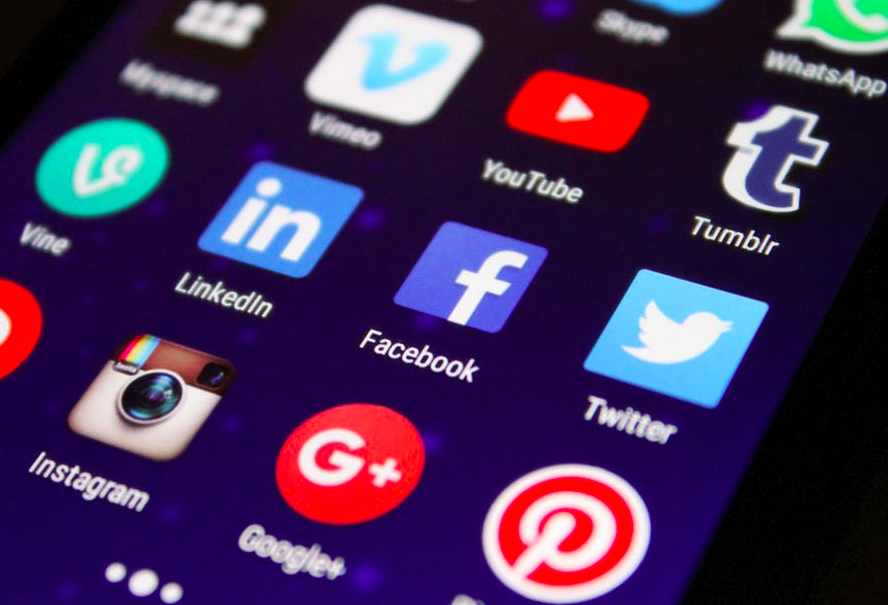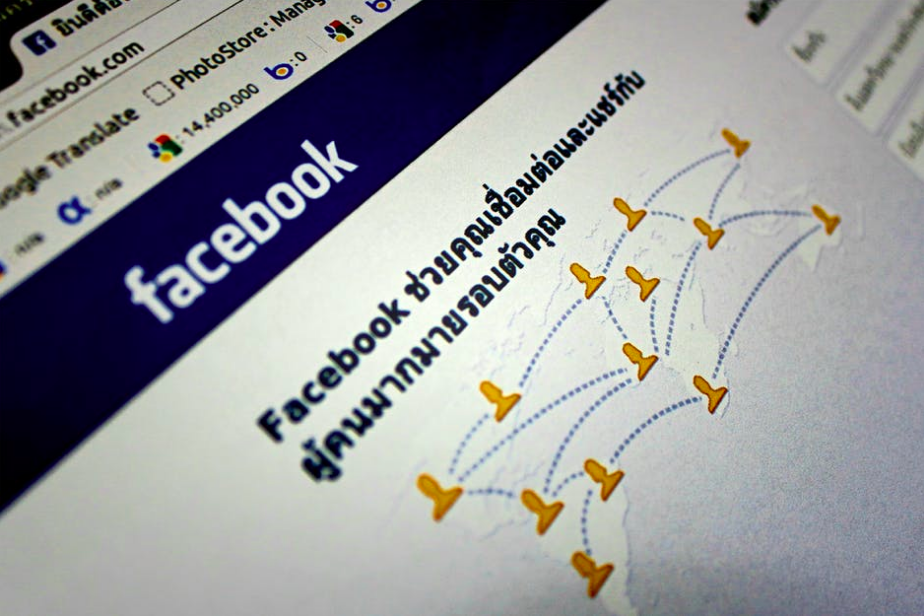
Armour of Light
Spring Haikus
Snow Light
Thinker Thoughts: Articles That Made Us Think
What We’ve Been Thinking About This Week
1. How Martin Luther changed the history of the world…
 Given that this week marked the 500th anniversary of the beginning of the Protestant Reformation, we felt it would be amiss not to recognize its significance.
Given that this week marked the 500th anniversary of the beginning of the Protestant Reformation, we felt it would be amiss not to recognize its significance.
A commentary in the Wall Street Journal by Eric Metaxas, “The Real Story of the Reformation” (10/30), sheds light on the history behind Martin Luther’s “nailing” of the 95 theses on Castle Church in Wittenberg, Germany.
Note: Eric Metaxas is the author of the book Martin Luther: The Man Who Rediscovered God and Changed the World (October 2017).
The quote:
“Luther probably didn’t post his theses on the famous date celebrated each year, though he likely did within a month of the designated day. And they might never have been posted by Luther, despite five centuries of paintings depicting him doing just that. As it happens, he may have handed the document to a church custodian to post. And if Luther did post it himself, he may even have unheroically affixed it with paste.
The most important difference between how most people remember the event and what actually happened is that the 30-something monk never dreamt that history would notice what he was doing. He did not intend to be defiant or to cause trouble. And he certainly did not plan to shake the foundations of the church he loved and obediently served. The idea that this all might lead to a sundering of the church was unthinkable. If he had thought of it, it would have utterly horrified him…
The powerful ideas Luther’s writings conveyed would in time lead to virtually everything we now take for granted in the modern world. By prompting the end of Vatican hegemony, Luther opened the door for the creation of thousands of new churches under dozens of denominations, Lutheran among them. In the coming centuries, this attitude would help elevate the concepts of religious pluralism, tolerance, democracy and freedom.”
2. Why we can’t simply blame social media platforms when it comes to spreading misinformation…
 An op-ed in The New York Times, “Silicon Valley Can’t Destroy Democracy Without Our Help” (11/2), encourages us to hold ourselves more accountable for seeking the truth in the current news landscape, instead of labeling ourselves as “victims of Silicon Valley manipulation.”
An op-ed in The New York Times, “Silicon Valley Can’t Destroy Democracy Without Our Help” (11/2), encourages us to hold ourselves more accountable for seeking the truth in the current news landscape, instead of labeling ourselves as “victims of Silicon Valley manipulation.”
The quote:
“…while Russian meddling is a serious problem, the current sentiment toward Silicon Valley borders on scapegoating. Facebook and Twitter are just a mirror, reflecting us. They reveal a society that is painfully divided, gullible to misinformation, dazzled by sensationalism, and willing to spread lies and promote hate. We don’t like this reflection, so we blame the mirror, painting ourselves as victims of Silicon Valley manipulation…
Twitter could work harder to fight hate speech, but that wouldn’t solve other difficult problems like ideological echo chambers and a general dumbing down of the national conversation, because those are also happening in real life. People already seek out cable television channels and newspaper opinion columns that reinforce their views.
Facebook’s algorithms may encourage echo chambers, but that’s because the company figured out what users want. Have you really never unfriended, unfollowed or muted someone who didn’t agree with you? Those who fret about the idea that many Americans don’t have access to diverse perspectives should scrutinize Americans’ individual choices as well as the platforms on which those choices are made.”
3. Why occultism is making a comeback…
 An op-ed in The New York Times, “Seasons of the Witch” (11/3), examines the renewed appeal of hexes, witchcraft and magic in American culture.
An op-ed in The New York Times, “Seasons of the Witch” (11/3), examines the renewed appeal of hexes, witchcraft and magic in American culture.
The quote:
“Often when traditional institutions and beliefs collapse and people are caught between cultural despair and cosmic hopes, they turn to magic. As [Dakota] Bracciale [an instructor at an occult boutique in Brooklyn] told me, “If the powers that be and established structures are leaving you by the wayside, and there is this thing which essentially offers a back door in, or a way to manipulate circumstances, why wouldn’t you try it?”…
Today…technocratic rationality is losing its hold. Though youth culture occultism predates Donald Trump’s presidency, Bracciale believes the calamity of the election accelerated interest in witchcraft. Witchcraft itself has certainly gotten political. Every month, thousands of witches, neo-pagans and other magic practitioners virtually join together to cast a binding spell on Trump: “So that he may fail utterly. That he may do no harm.” (The pop star Lana Del Rey has participated.)”
Phrase of the week: “Biology’s philosophers”
An article in Quartz, “A Biologist Believes That Trees Speak a Language We Can Learn” (11/3), quotes biologist George David Haskell, author of the 2017 book The Songs of Trees, who believes trees are “biology’s philosophers, dialoguing over the ages, and offering up a quiet wisdom.”
See our previous Thinker Thoughts here, here, here, here and here, covering everything from Facebook’s domination of the world to the existential question of space travel.
Thinker Thoughts: Articles That Made Us Think
Thinker Thoughts is evolving! Every Friday, we’re sharing our 3 favorite reads of the week and what they encouraged us to think about. Give them a think and let us know your thinker thoughts!
What We’ve Been Thinking About This Week
1. What it would be like to FaceTime with your doctor…
 An article in Wired, “Telemedicine is Forcing Doctors to Learn ‘Webside’ Manner” (10/26), has us weighing the pros and cons of utilizing digital tools to connect clinicians with their patients, noting that some schools are incorporating telemedicine instruction into their medical school curriculum.
An article in Wired, “Telemedicine is Forcing Doctors to Learn ‘Webside’ Manner” (10/26), has us weighing the pros and cons of utilizing digital tools to connect clinicians with their patients, noting that some schools are incorporating telemedicine instruction into their medical school curriculum.
The quote:
“Ad hoc, virtual visits can work great when a patient needs a quick diagnosis for a sore throat or weird rash. But many experts are skeptical of clinicians’ ability to deliver compassionate, high-quality care to virtual strangers. ‘Look, there’s variation whether you see a clinician in person or whether you see them online, so I’m not saying in any way that telemedicine is less helpful than in-person visits, or that webside manner is worse than bedside manner,’ says UCSF pulmonologist Adams Dudley. ‘But webside manner definitely requires more cooperation, and a different kind of cooperation, than bedside manner.’”
2. Why the U.S. is the ‘most depressed’ country…
 An article in the Wall Street Journal, “Why Personal Tech is Depressing” (10/26), encourages us to opt for in-person interactions over digital communication for the sake of our mental health, citing recent research which found that antidepressant use in the U.S. has risen 400% since 1990.
An article in the Wall Street Journal, “Why Personal Tech is Depressing” (10/26), encourages us to opt for in-person interactions over digital communication for the sake of our mental health, citing recent research which found that antidepressant use in the U.S. has risen 400% since 1990.
The quote:
“We live in an era of previously unimaginable luxury. Without leaving our sofas, we can conjure almost any book or film on our phone and enjoy it with exotic cuisine delivered right to our doorstep via an app. But there is a cost to this convenience that doesn’t appear on your credit-card statement. Our indoor, sedentary and socially isolated lives leave us vulnerable to depression. The U.S., the most technologically advanced nation on the planet, is also the most depressed: Three in 10 Americans will battle depressive illness at some point in their lives, an estimated tenfold increase since World War II….
At first blush, it seems as if our smartphones should keep us better connected than ever through an endless stream of texts, instant messages, voice calls and social-media interactions. But as smartphones have become ubiquitous over the past decade, the proportion of Americans who report feelings of chronic loneliness has surged to 40%, from 15% 30 years ago. The psychological burden is particularly pronounced for those who don’t balance screen time with in-person interactions. Face-to-face conversations immerse us in a continuous multichannel sensory experience—only a fraction of which can be transferred via text or video message. Communicating solely through technology robs us of the richer neurological effects of in-person interactions and their potential to alleviate feelings of loneliness and depression.”
3. How we can learn to deal with fanatics through compassionate listening…
 A column by David Brooks in the New York Times, “How to Engage a Fanatic” (10/23), challenges us to resist our natural instinct to ‘fight back’ when conversing with people we don’t agree with, and instead opt for civility.
A column by David Brooks in the New York Times, “How to Engage a Fanatic” (10/23), challenges us to resist our natural instinct to ‘fight back’ when conversing with people we don’t agree with, and instead opt for civility.
The quote:
“You engage fanaticism with love, first, for your own sake. If you succumb to the natural temptation to greet this anger with your own anger, you’ll just spend your days consumed by bitterness and revenge. You’ll be a worse person in all ways.
If, on the other hand, you fight your natural fight instinct, your natural tendency to use the rhetoric of silencing, and instead regard this person as one who is, in his twisted way, bringing you gifts, then you’ll defeat a dark passion and replace it with a better passion. You’ll teach the world something about you by the way you listen. You may even learn something; a person doesn’t have to be right to teach you some of the ways you are wrong…
We all swim in a common pool. You can shut bigots and haters out of your dining room or your fantasy football league, but when it comes to national political life, there’s nowhere else to go. We have to deal with each other.”
Phrase of the week: “It’s official: horror is back.”
An article in NPR, “Watch Out: This Halloween, Horror is Back” (10/26), reports that “thanks to a resurgence of scary movies [i.e. It, which came out September 8th, based on the novel by Stephen King] and a desire to escape the real world”, people are opting for costumes that provoke horror and fright.
And on that note…
Happy Halloween Weekend!
See our previous Thinker Thoughts here, here, here and here, covering everything from Facebook’s domination of the world to the existential question of space travel.
Thinker Thoughts: Articles That Made Us Think
Thinker Thoughts is evolving! Every Friday, we’re sharing our 3 favorite reads of the week and what they encouraged us to think about. Give them a think and let us know your thinker thoughts!
What We’ve Been Thinking About This Week
1. Why rule by the people is better than rule by the “experts”…
 A piece in Aeon, “Treat People as Citizens” (10/18), encourages us to think about what democracy is – and what it should be – arguing that our country’s current model has often underestimated the abilities of ordinary people and instead elevated a “rule by experts” mentality.
A piece in Aeon, “Treat People as Citizens” (10/18), encourages us to think about what democracy is – and what it should be – arguing that our country’s current model has often underestimated the abilities of ordinary people and instead elevated a “rule by experts” mentality.
As the author notes, “Democracy requires treating people as citizens – that is, as adults capable of thoughtful decisions and moral actions, rather than as children who need to be manipulated.” Read more
Thinker Thoughts: Articles That Made Us Think
Thinker Thoughts is evolving! Every Friday, we’re sharing our 3 favorite reads of the week and what they encouraged us to think about. Give them a think and let us know your thinker thoughts!
What We’ve Been Thinking About This Week
1. Why we might need to reconsider how much time we spend on our smartphones…
 An article in the Wall Street Journal, “How Smartphones Hijack Our Minds” (10/6), has us thinking twice about our dependency on our smartphones, based on recent research that suggests “people’s knowledge and understanding may actually dwindle as gadgets grant them easier access to online data stores.” Read more
An article in the Wall Street Journal, “How Smartphones Hijack Our Minds” (10/6), has us thinking twice about our dependency on our smartphones, based on recent research that suggests “people’s knowledge and understanding may actually dwindle as gadgets grant them easier access to online data stores.” Read more
Thinker Thoughts: Articles That Made Us Think
Thinker Thoughts is evolving! Every Friday, we’re sharing our favorite reads of the week and what they encouraged us to think about. Give them a think and let us know your thinker thoughts!
What We’ve Been Thinking About This Week
1. How Facebook has, quite literally, taken over the world…
 An article in New York Magazine, “Does Even Mark Zuckerberg Know What Facebook Is?” (10/2), encourages us to think about the role that Facebook plays in safeguarding democracy and fostering a global community. Read more
An article in New York Magazine, “Does Even Mark Zuckerberg Know What Facebook Is?” (10/2), encourages us to think about the role that Facebook plays in safeguarding democracy and fostering a global community. Read more
Thinker Thoughts: Articles that Made us Think
Thinker Thoughts is evolving! Every Friday, we’re sharing our 3 favorite reads of the week and what they encouraged us to think about. Give them a think and let us know your thinker thoughts!
What We’ve Been Thinking About This Week
1. How our brains react when we experience a beautiful masterpiece…
 A fascinating, animated feature in The Washington Post, “This is Your Brain on Art” (9/18), stimulates our brain by examining the science behind our brain’s response to seeing and experiencing art (i.e. ballets, theater shows, etc.). Read more
A fascinating, animated feature in The Washington Post, “This is Your Brain on Art” (9/18), stimulates our brain by examining the science behind our brain’s response to seeing and experiencing art (i.e. ballets, theater shows, etc.). Read more
Thinker Thoughts: Articles that Made us Think
Thinker Thoughts is evolving! Every Friday, we’re sharing our favorite reads of the week and what they encouraged us to think about. Give them a think and let us know your thinker thoughts!
What We’ve Been Thinking About This Week
1. How technology and automated algorithms are robbing us of our humanity…
 An essay for The Washington Post, “How Silicon Valley is Erasing Your Individuality” (9/8), forces us to confront the perils and consequences of a world governed by the tech giants (i.e. Google, Amazon, Facebook, Apple). Read more
An essay for The Washington Post, “How Silicon Valley is Erasing Your Individuality” (9/8), forces us to confront the perils and consequences of a world governed by the tech giants (i.e. Google, Amazon, Facebook, Apple). Read more



